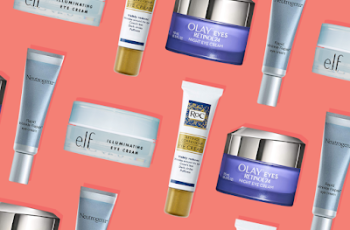
Can You Use Azelaic Acid and Vitamin C Together?
Finding the best ingredients that work together can be a little challenging, especially when it comes to two ingredients that are as well used and loved as Vitamin C and Azelaic acid. Both of these potent acids have each gained a loyal following of dermatologists and skincare fans over the years, but the question we are looking at today is- can you use them both together in your daily skincare routine? Well, that is exactly what we will be exploring today, so let’s dive right in and find out more.
What is azelaic acid?
Azelaic acid is a favourite amongst dermatologists for its versatility and gentleness on the skin, especially for skin that is often prone to frequent breakouts. Though it is actually naturally found in the body you will find this acid can be derived from many different natural sources, such as wheat and grains as well as synthetically developed. This generally results in this acid reaching concentrate levels of 15%-20% which is used throughout professional treatments and products, for over the counter a total of 10% can be found making it a lot safer option for the skin.
The praise it gains for its versatility is represented through the vast amounts of product formulas it can be blended in to, from leave on treatments to gels, creams and foaming cleanser. All of which provide different skin results whilst targeting the same concerns.
Main Skin Benefits of Azelaic Acid
Can exfoliate the skin gentle and effectively while work deeply into any clogged pores without causing skin irritation.
Reduces inflammations and soothes any flare ups caused by rosacea and breakouts.
Fights acne and other breakouts by combating the troublesome spot causing P.acnes bacteria.
Can combat uneven skin tone due to the fact it contains an enzyme that can prevent post breakout hyperpigmentation
As gentle as it may be it is always advisable to consult with your doctor that this ingredient will not disrupt your skin and cause any unwanted skin reactions. Don’t forget to apply your daily SPF too to prevent any damage from UV exposure.
What is vitamin C?
By now you must all know about my love for vitamin C in my daily skincare routine, and I’m not the only one obsessed with this powerhouse ingredient! Vitamin C also goes by the name ascorbic acid and has impressive skin results for those with pigmentation concerns and other damage caused by free radicals, such as pollution and UV exposure. Vitamin C is known for having the shortest shelf life when it comes to cosmetic formulas it begins to lose its potency rather rapidly once exposed to oxygen and UV rays. Luckily vitamin C products often come in the correct packaging allowing you to have enough time to use up the product before it oxidises. If you are finding this a little confusing and can’t determine if your product is safe to use then check out our blog post about figuring out if your vitamin C serum is oxidised.
Main Skin Benefits of Vitamin C
Reduces the appearance of dark spots and pigmentation
Powerful antioxidant that combats skin irritation and damage caused by free radicals
Improves the appearance of red marks left on the skin from spots and breakouts
Builds skin resilience to UV exposure making it able to protect itself better from the sun
Much like all skin ingredients we do advise applying a daily SPF to fully protect the skin from UV and other free radical damage.
Pink Clay Face Mask With Vitamin C
What should you not mix with azelaic acid?
Azelaic acid is effective when used alone or paired with other ingredients, however there is only a select few that will play ball with this acid. You will find soothing and hydrating ingredients, such as niacinamide, Alpha hydroxy acids and antioxidants work well when teamed with azelaic acid. Although it comes with the familiar acid name, azelaic acid is not a member of extended hydroxy family. This is the main factor allowing you to combine it with AHAs such as lactic acid and glycolic acid without the added worry of stripping the skin of the vital oils and water it needs to remain healthy and functioning properly. Remembering of course to follow the instructions on the packaging on how to use the product to avoid any flare-ups!
I do have one word of warning, and that is azelaic acid and salicylic acid do not work well together! Admittedly these acids work on slightly different areas of the skin, it is still too much and a harsh combination of ingredients to use on the skin, especially if you have a skin type that is dry, sensitive and prone to skin conditions such as eczema and rosacea. It is best to alternate these ingredients in your daily routine, that way you’ll reap the rewards without the side effects.
Ingredients to avoid using with azelaic acid
BHAs such as salicylic acid
What can you not mix with vitamin C?
With its reputation for being unstable formulated into skincare product there are a number of ingredients that should be avoided when using vitamin C. These ingredients are often exfoliating or hydrating, the former usually AHAs or retinol and the later niacinamide. When it comes to the moisturising benefits of niacinamide it is always a good idea to include into your skincare, however, when teamed with vitamin C you will find them counteract each other making them both somewhat useless. As for using vitamin C and either AHAs, BHAs and retinol together can lead to an increase risk in skin sensitivity, peeling, irritation and redness, if however, you are wanting to use these ingredients as mentioned before it is best to alternate when you use them in your routine.
Ingredients to avoid using with vitamin C
AHAs
BHAs
Retinol
Niacinamide
Benzoyl peroxide
When introducing any new product into your daily routine it is always best to perform a patch test for 24 hours just to make sure your skin is happy for you to apply the product to the rest of your skin, whilst having the peace of mind there wouldn’t be any skin irritation.
Can I use azelaic acid and vitamin C together?
It is known that using azelaic acid and vitamin C together is perfectly safe, however many suggest that when using these two potent ingredients together in your skincare routine to use vitamin C in the morning and azelaic acid in the evening. This is mainly due to the fact that vitamin C is packed with antioxidant properties making it able to protect the skin barrier from free radical damage that our skin comes into contact with throughout the day. Therefore, using it in the evening isn’t necessary, however, what you will find is that your skin gains optimal skin benefits of both ingredients without any skin damage or side effects making them quite the power duo!
Should I use azelaic acid before or after moisturiser?
When it comes to azelaic acid, many skincare experts would suggest applying it after your water based products and before your moisturisers. This is because azelaic acid works so effectively at combating spots and blemishes. By applying your moisturiser after azelaic acid you are allowing the potent ingredient to penetrate the lower layers of the skin without having to fight against the physical barrier created from moisturisers applied to the face.
I hope that answers a majority of your azelaic acid and vitamin C questions and whether or not they can be used together! If you have any other questions you want us to discuss come along and follow us on Instagram like so many of you already have- It’s always so great to hear from you all!


